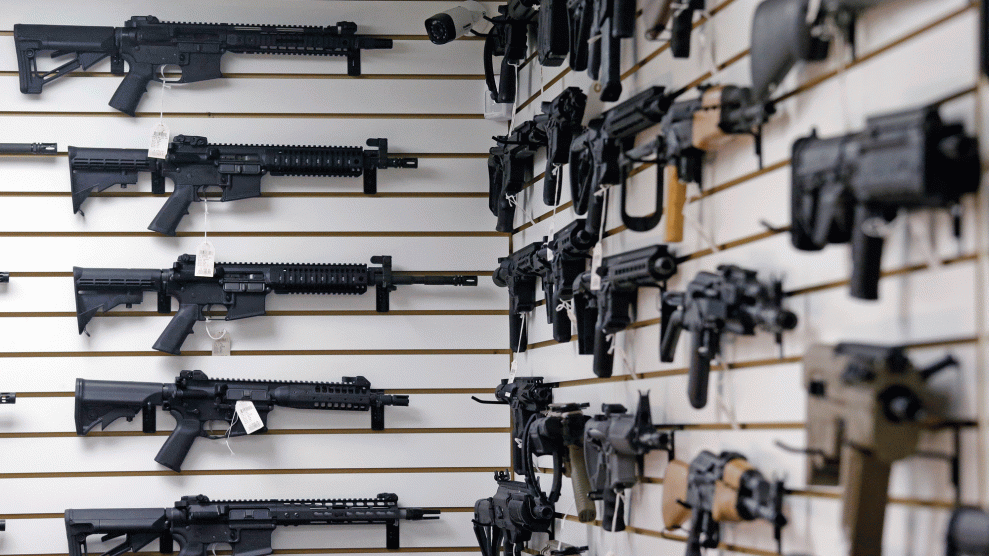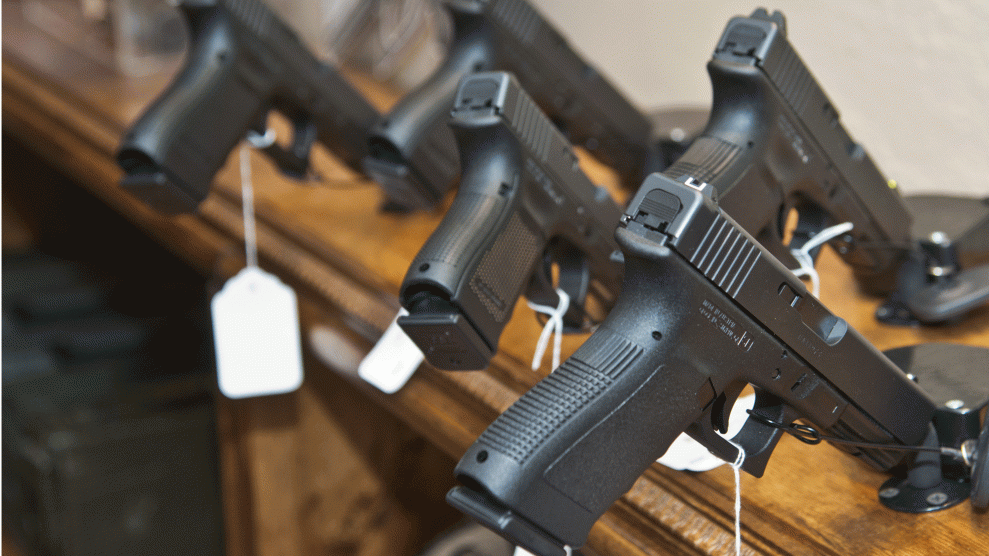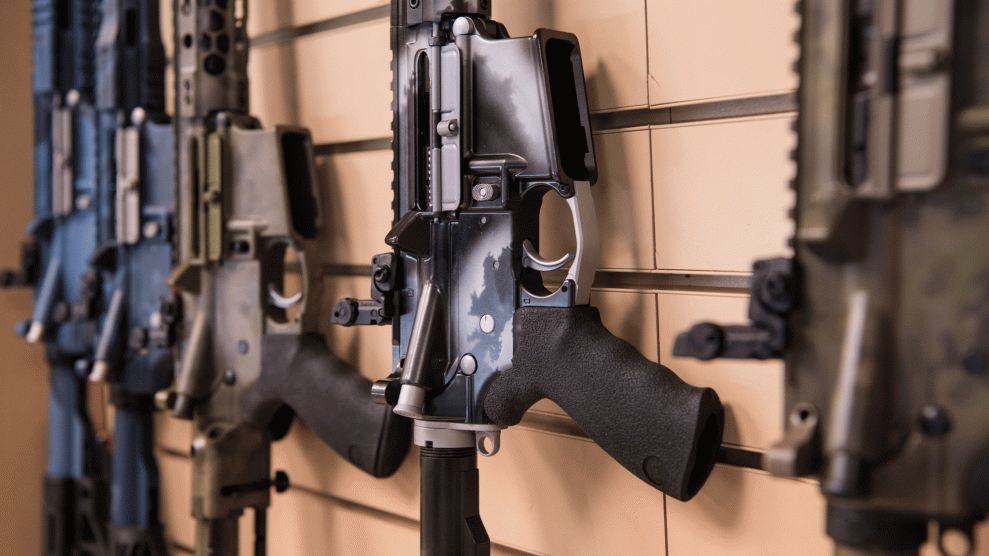
Semi-automatic rifles line the walls of a gun shop in Lynnwood, Washington.Elaine Thompson/AP
The day after a new poll revealed that 95 percent of American voters support universal background checks for gun purchases—a record high—a bi-partisan group of lawmakers introduced legislation to improve the federal background check system.
The measure would not mandate a background check for every gun sale. The “compromise” legislation, as the senators put it, would instead focus on requiring state and federal agencies to do a better job of entering criminal history records into the National Instant Criminal Background Check System (NICS), as is already required by law. The Fix NICS Act would penalize federal agencies that fail to properly input records and incentivize states to improve their overall reporting.
The group of seven senators sponsoring the bill is led by Sen. John Cornyn (R-TX), who has an A+ rating from the NRA, and includes four Republicans and three Democrats—Sens. Chris Murphy (D-CT), Dianne Feinstein (D-CA), and Richard Blumenthal (D-CT), all prominent gun safety advocates.
“It’s no secret that I believe much more needs to be done,” Sen. Murphy said in a statement on Thursday. “But this bill will make sure that thousands of dangerous people are prevented from buying guns. It represents the strongest update to the background checks system in a decade, and provides the foundation for more compromise in the future.”
The bill was inspired by an apparent loophole that came to light in the wake of the tragic mass shooting at a baptist church in Sutherland Springs, Texas, that left 26 dead earlier this month. The shooter had a history of domestic abuse; as a member of the Air Force, he’d been court-martialed for two charges of domestic assault, sentenced to 12 months of confinement, and was kicked out of the military in 2014 with a Bad Conduct Discharge. Technically, his crimes prevented him from legally buying a gun, but the Air Force never submitted the criminal records for the the NICS database, allowing him to pass a background check and purchase a gun. It’s unclear how frequently this occurs, but the Trace found that it may be a much wider problem than this isolated incident.
“Mass murderers in Sutherland Springs, Charleston, and Blacksburg were legally prohibited from accessing firearms, but gaps in NICS allowed each of them to walk out of a gun store with the weapons used to commit their crimes,” said Sen. Blumenthal. He told the New York Times, “It may seem to many like a baby step, but a journey of a thousand miles begins with a single step, and this one could well be important in breaking the ice of complicity that has paralyzed Congress.”
This isn’t the first time that lawmakers have introduced a law to force federal agencies to better comply with existing gun-control laws. In 2007, the House voted to close a loophole that allowed the Virginia Tech gunman to purchase weapons despite having been committed to a mental hospital. It provided grant money for states to update the background checks database, adding more criminal records and mental health information, and was similarly viewed as a compromise bill between lawmakers with opposing political views. A co-sponsor, Rep. Lamar Smith (R-TX), said at the time, “This act will ensure that the background check system really is instant and accurate.”
There has been improvement in reporting on both criminal backgrounds and mental health since then, but ten years and several mass shootings later shows there is still much to be done.

















